Designing Trust Infrastructure for Emerging Mental Health Systems
How strategic narrative architecture shaped national care policy in the Netherlands — and unlocked cross-European collaboration
SYSTEMIC CHALLENGE
As Europe explored new models for trauma recovery, one question became central:
How do you introduce next-generation care into public systems — when regulation, emotion, and public trust move at different speeds?
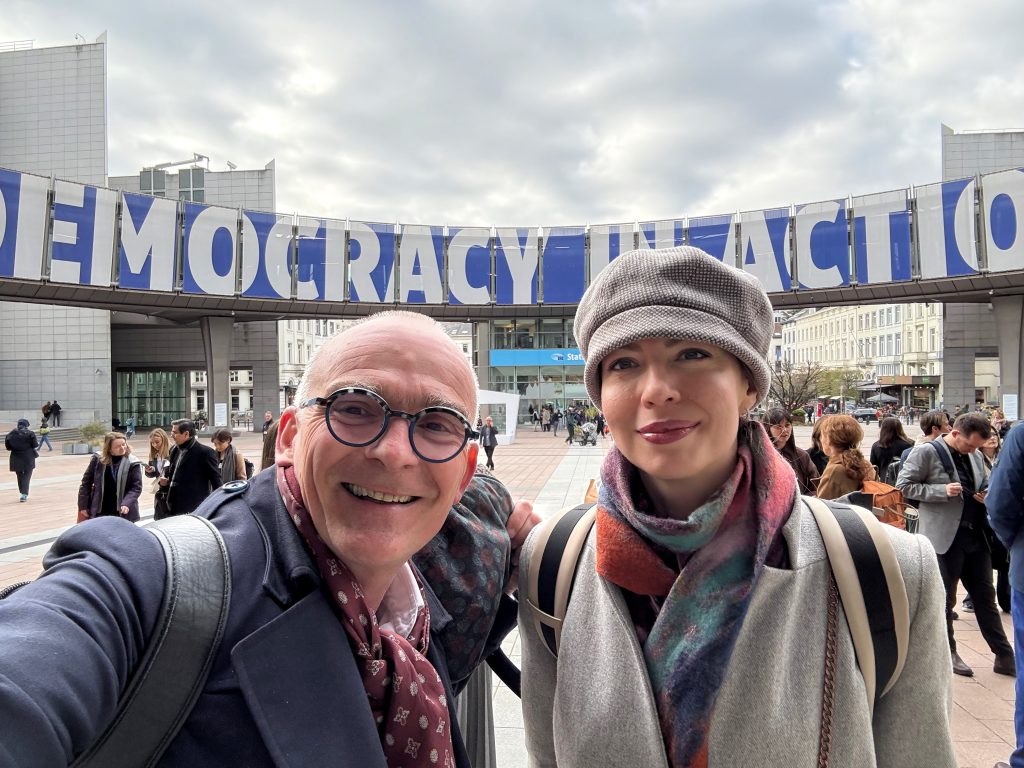
In the Netherlands, this took the form of a State Commission — a multidisciplinary body tasked with evaluating the feasibility, ethics, and public perception of integrating novel mental health treatments into regulated care.
The challenge was systemic:
Science was moving fast
Policy was catching up
Public understanding was fragmented
At stake wasn’t just implementation — but public trust, narrative alignment, and the emotional safety of those most affected.
MY ROLE
I was invited to join the Commission in a dual capacity:
◉ Clinical Psychologist (trauma & care design)
◉ Strategic Communications Lead (narrative systems & stakeholder alignment)
WHAT I BUILT
🤝 Human-Centered Research Design
Created participant surveys to embed psychological safety into structure and tone
Increased data reliability and reduced drop-off by reframing cold/formal language into trauma-aware email outreach
🤝 Narrative Architecture for a Multi-Sector Audience
Co-authored the Commission’s flagship paper — used in shaping national recommendations
Facilitated alignment between clinicians, scientists, legal experts, and government reps through shared messaging frameworks
🤝 Stakeholder Messaging Strategy
Developed a high-trust language framework to be used across:
∘ Policy documents
∘ Public engagement
∘ Intra-Commission commsIntroduced tools to prevent narrative drift and misinterpretation in emotionally sensitive contexts
As a psychologist, I approached every interaction not only through a strategic lens, but through clinical insight — attuned to tone, emotional readiness, and the risks of re-traumatization in policy discourse.
BEYOND THE COMMISSION
This work didn’t end at publication — it opened doors and deepened trust:
IMPACT
✔️ National Policy Recommendation
My paper co-authorship supported the Commission’s formal recommendation to integrate novel trauma treatments into regulated clinical care.
✔️ Cross-European Platform Invitation
Based on this work, I was invited as a strategic communications advisor to a new European platform on care innovation — focused on ethical implementation across national contexts.
✔️ Brussels Roundtable Contribution
Selected to join an EU-level roundtable on post-conflict trauma care in Ukraine — translating care innovation into policy-relevant narratives for high-level mental health strategy.
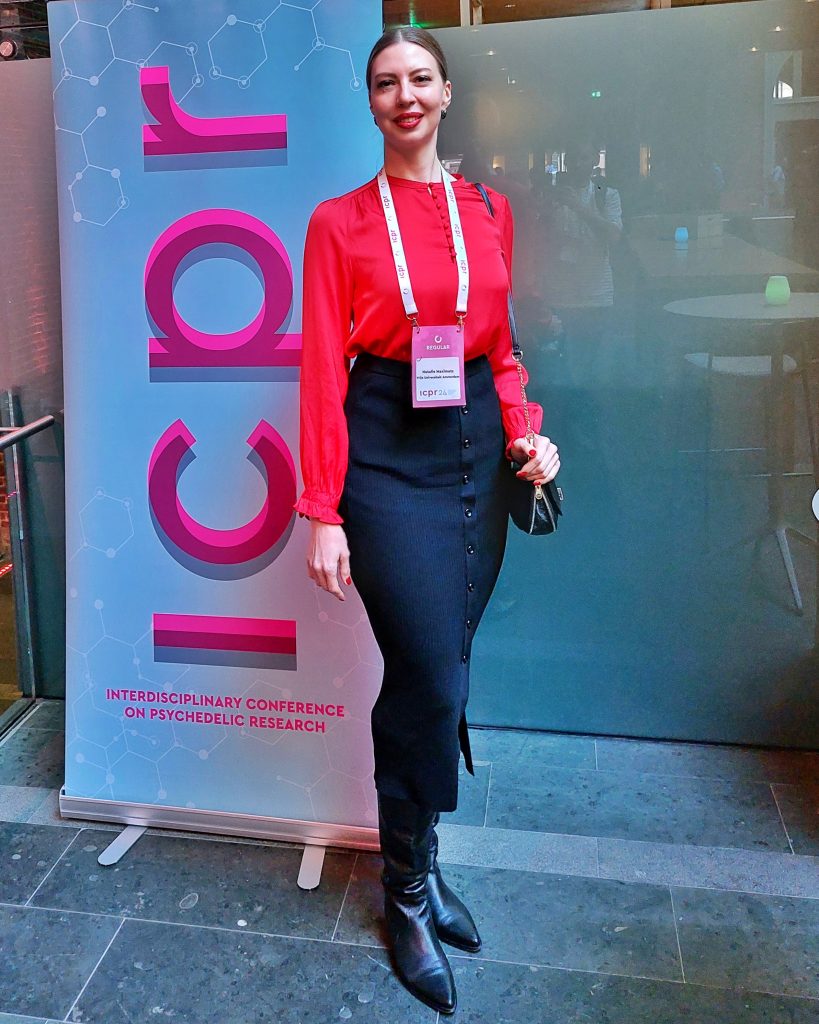
STRATEGIC VALUE
◉ Designed a trauma-aware national survey from scratch, embedding psychological safety into its structure, tone, and sequencing — resulting in high participant engagement and robust, context-sensitive data.
◉ Enabled cross-sector decision-making by aligning legal, clinical, and policy voices through shared language and messaging systems.
◉ Reduced reputational risk in a sensitive public health domain by introducing tone frameworks that balanced transparency with emotional responsibility.
◉ Co-authored an expert position paper outlining clinical and regulatory considerations for implementing novel mental health treatments in European mental healthcare.
◉ Advised on narrative systems at the EU level, contributing to a high-level roundtable on mental health strategy for displaced populations.
◉ Invited as a cross-national strategic advisor, helping build communication infrastructure across European platforms exploring innovative mental health care.
◉ Supported trust-building within Ukrainian clinical networks, designing communication pathways that respect both cultural nuance and clinical integrity.
EXPERTISE IN ACTION
✔️ Strategic Communications for Complex Systems
Designing high-trust messaging strategies that align cross-sector teams in regulated, research-driven, or emotionally sensitive environments.
✔️ Clinically-Informed Narrative Strategy
Bringing the insight of a practicing clinical psychologist to the design of communications — with attunement to trauma, readiness, and emotional risk.
✔️ Trauma-Aware Research Architecture
Developing surveys and participant engagement tools rooted in psychological safety, clinical ethics, and real-world usability.
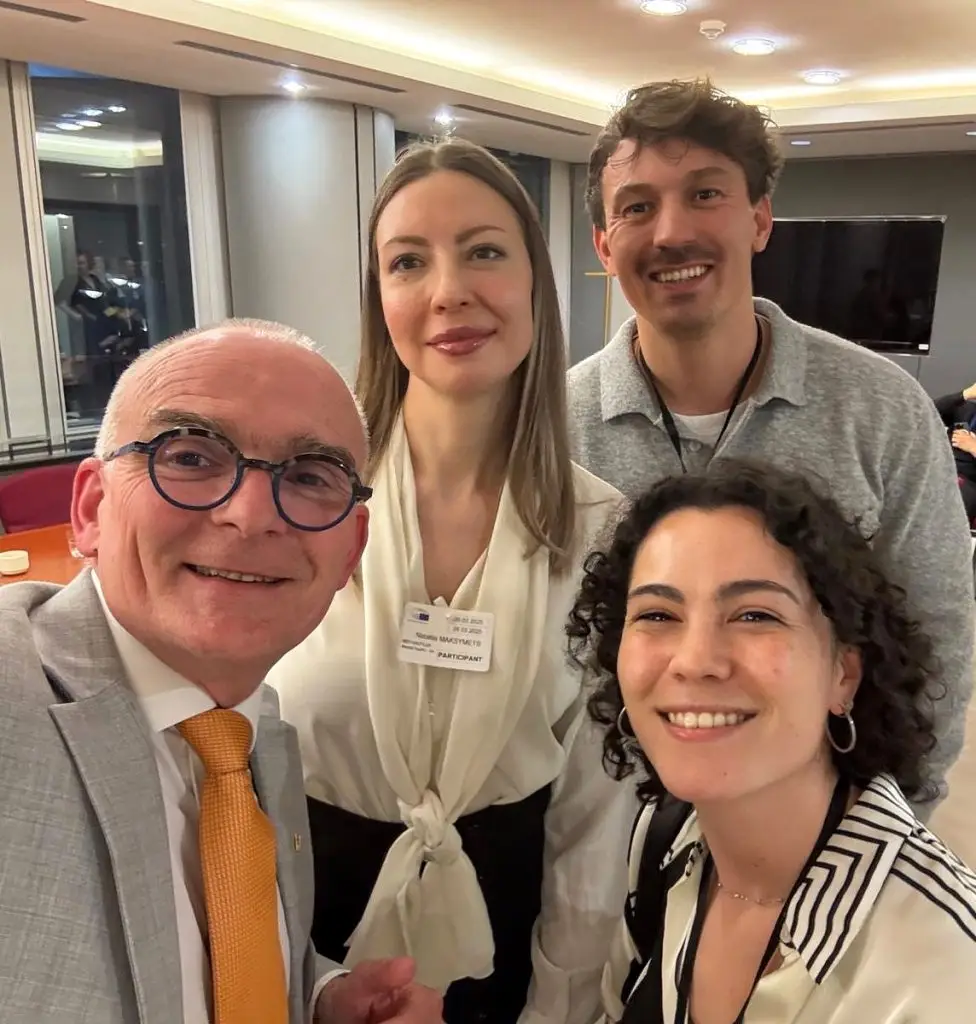
✔️ Risk-Conscious Messaging in Sensitive Domains
Creating communications that reduce misunderstanding, build institutional credibility, and enable ethical progress in innovation and care.
✔️ Narrative Systems for Public Understanding
Translating emerging mental health models into clear, accessible narratives that resonate with diverse audiences — from funders to frontline teams.
✔️ Cross-Cultural Facilitation in Mental Health Innovation
Supporting global and multilingual teams through tone-aware storytelling and culturally adaptive engagement.
REFLECTION
This isn’t a case study with a clean ending — and that’s exactly the point.
In complex systems — especially those involving trauma, innovation, and public accountability — progress isn’t marked by finality.
It’s measured by alignment, traction, and trust that holds under pressure.
My role in this work wasn’t to promote a treatment or push an agenda.
It was to hold space for clarity where there was noise, to design communications that respected emotional complexity, and to help institutions move forward without leaving people behind.
This project reflects the kind of contribution I specialize in:
When the topic is sensitive
The environment is high-stakes
And the work requires both clinical insight and strategic discipline
It’s still in motion — as most meaningful work is.
And I remain committed to shaping systems where ethics, language, and trust evolve together.
WHAT’S HAPPENED SINCE
Following the Commission work, I continued supporting high-level efforts at the intersection of trauma care, systems change, and ethical communications — including two completed engagements:
✔️ MAPS Therapist Educational Program (Completed)
I participated as both a Ukrainian clinical psychologist and communications strategist in MAPS’ International Therapist Education Program, designed for Ukrainian mental health professionals.
In addition to completing the training, I contributed to the program’s storytelling strategy and ethical narrative alignment, helping reshape how the work is framed across cultural and clinical contexts.
A deeper case study on this project is forthcoming — exploring how narrative design, cultural ethics, and clinical preparation came together in a uniquely high-stakes context.
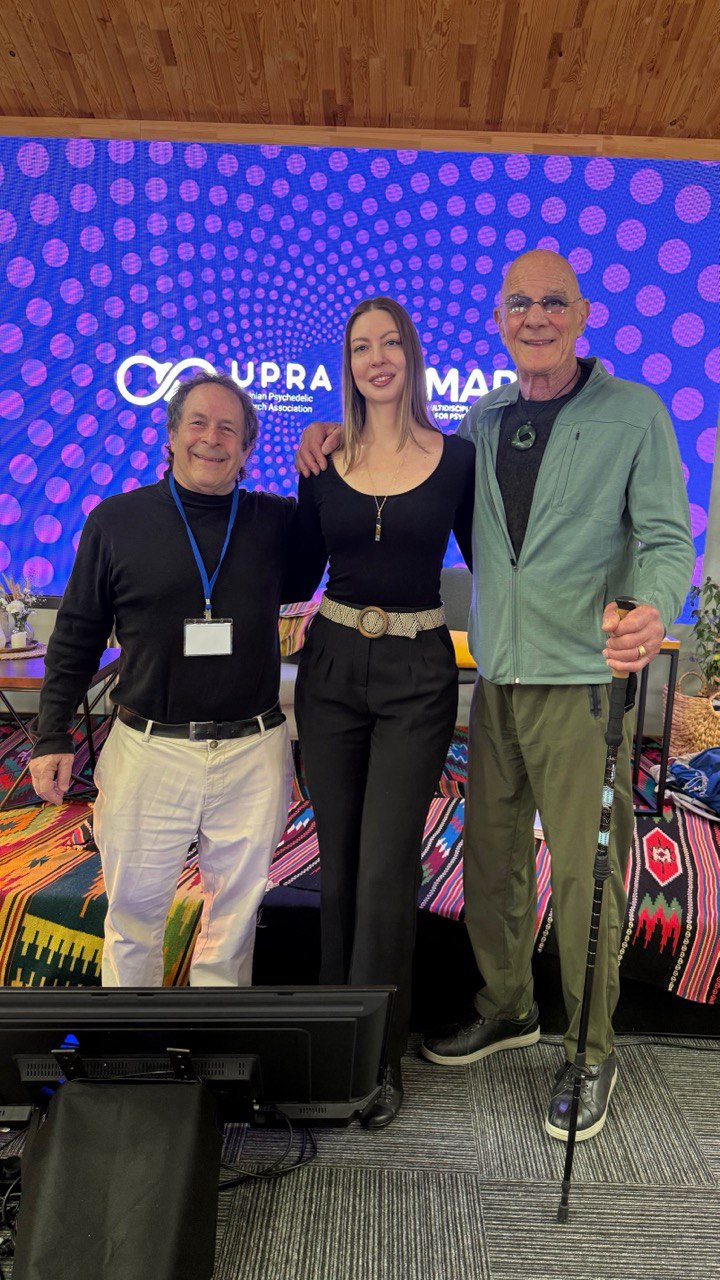
✔️ Prague Castle Conference on Novel Mental Health Treatments (Completed)
In June 2025, I was invited to contribute to a high-level European summit on next-generation trauma care — convening voices from NATO, Parliament, clinical research, civil society, and veteran communities.
“I found myself bridging security with psychotherapy, legislative language with lived experience — veterans with visionaries. The day felt like a system undergoing neuroplasticity — forming cross-sectoral memory, new pathways, and some quiet hope.”
The conversations sparked during this summit continue to inform my work — particularly in how we design communications that support not only policy, but the emotional and structural conditions that make lasting mental health reform possible.
STILL IN MOTION
This isn’t a case study with a clean ending — because the work it describes was never just tactical.
It’s about shaping the narratives that shape systems — building the language, tone, and trust needed for ethical change to take root.
My role wasn’t to communicate about progress, but to design the conditions that make it possible.
That work is still in motion — and so am I.
Related Posts
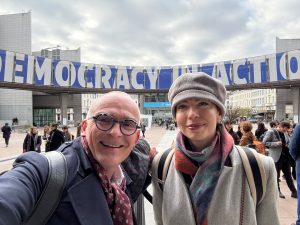
Designing Trust Infrastructure for Emerging Mental Health Systems
Designing Trust Infrastructure for Emerging Mental Health Systems How strategic narrative architecture shaped national care policy in the Netherlands — and unlocked cross-European collaboration SYSTEMIC CHALLENGE As Europe explored new models for trauma recovery, one question became central: How do you introduce next-generation care into public systems — when regulation, emotion, and public trust move

Localizing Moodbuster for Displaced Ukrainians — Bridging Science and Human Story
Localizing Moodbuster for Displaced Ukrainians — Bridging Science and Human Story When the Script Was My Story: Localizing a Depression Tool with Clinical Insight and Emotional Truth. Moodbuster is a clinically validated digital mental health intervention, grounded in cognitive-behavioral therapy (CBT) principles. Moodbuster was designed to make structured, evidence-based support accessible beyond traditional clinical settings.
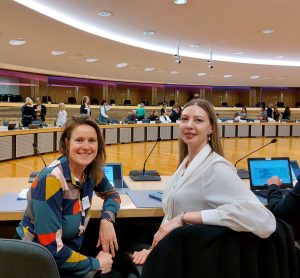
Delivering Trauma-Aware Mental Health to 150,000+ Displaced Ukrainians
Delivering Trauma-Aware Mental Health to 150,000+ Displaced Ukrainians What it takes to localize digital and face-to-face mental health support at scale — without losing clinical depth or cultural sensitivity. The U-RISE Project was a multi-country EU initiative that delivered trauma-informed, digital, and face-to-face mental health support to over 150,000 displaced Ukrainians — blending clinical integrity
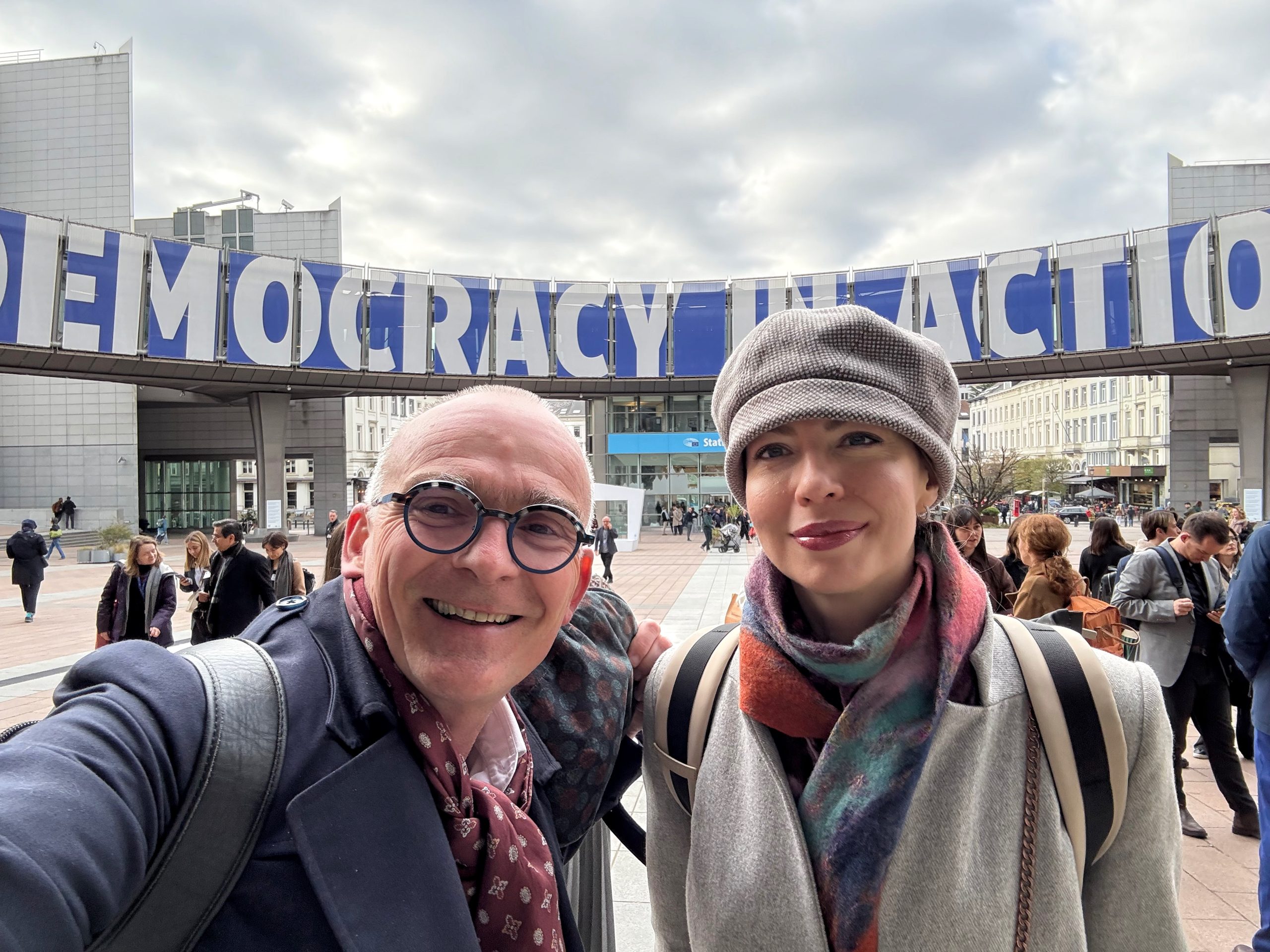

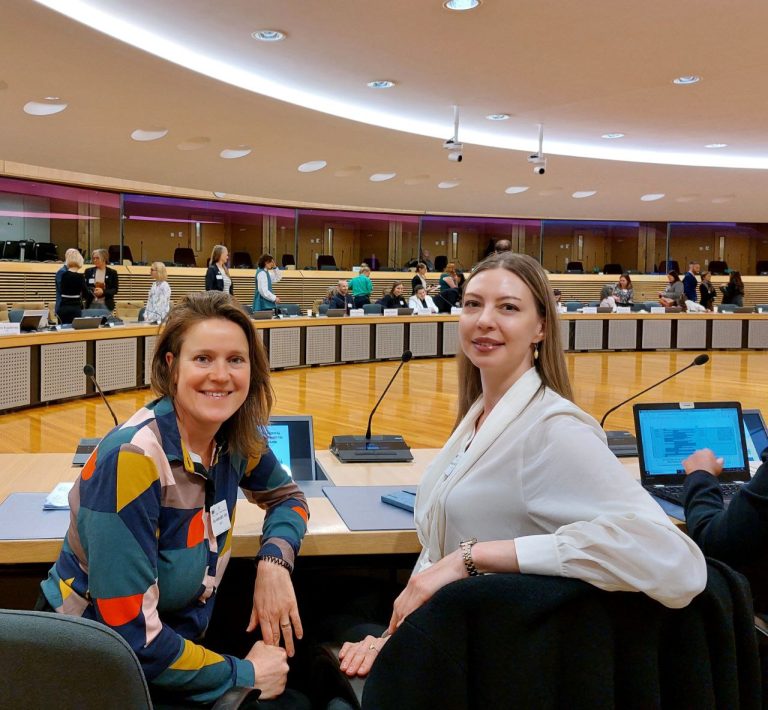
https://shorturl.fm/yRj41
https://shorturl.fm/v8jEP
https://shorturl.fm/TaDwY
https://shorturl.fm/guGG0
https://shorturl.fm/yHMQs
https://shorturl.fm/Z0XlB
https://shorturl.fm/8Opvg
https://shorturl.fm/a41eU
https://shorturl.fm/sZlrC
6hcvww
https://shorturl.fm/ZNwzB
https://shorturl.fm/8RFJn
https://shorturl.fm/quW0O
5umiee
https://shorturl.fm/VVa7F
https://shorturl.fm/F5TLP
https://shorturl.fm/fTGj8
https://shorturl.fm/fOLsd
https://shorturl.fm/dbBet
https://shorturl.fm/5ymQo
https://shorturl.fm/idJNj
https://shorturl.fm/fuOdu
https://shorturl.fm/K5Prj
https://shorturl.fm/lKdjU
dsr63e
https://shorturl.fm/rlD4f
https://shorturl.fm/kkkA0
https://shorturl.fm/WtpEa
https://shorturl.fm/RP9aY
https://shorturl.fm/LnFJt
https://shorturl.fm/m1tgG
https://shorturl.fm/tOV6U
https://shorturl.fm/HdKrb
https://shorturl.fm/xZ3Qz
https://shorturl.fm/mfODY
https://shorturl.fm/hH6to
https://shorturl.fm/EtDWT
https://shorturl.fm/8KqKf
https://shorturl.fm/gCVvH
https://shorturl.fm/MUnuw
https://shorturl.fm/LevWI
https://shorturl.fm/ulTOW
https://shorturl.fm/SrK9e
https://shorturl.fm/ol521
https://shorturl.fm/2rKoW
https://shorturl.fm/VwRoS
https://shorturl.fm/rOWdi
https://shorturl.fm/ghBnv
https://shorturl.fm/usFoy
https://shorturl.fm/ikLj0
https://shorturl.fm/NVbJs
https://shorturl.fm/FAJWj
https://shorturl.fm/xK5hp
https://shorturl.fm/brQB0
https://shorturl.fm/FZJap
https://shorturl.fm/UjnVS
https://shorturl.fm/L4mnG
https://shorturl.fm/4nVc5
b9rxts
https://shorturl.fm/QbdL9
https://shorturl.fm/WlEve
https://shorturl.fm/da246
https://shorturl.fm/TnLGl
https://shorturl.fm/QmYwh
https://shorturl.fm/Xrq89
https://shorturl.fm/VcBZT
https://shorturl.fm/qePjQ
https://shorturl.fm/p9bq2
https://shorturl.fm/wvIym
https://shorturl.fm/4jMR2
https://shorturl.fm/hmRej
https://shorturl.fm/Kbemy
https://shorturl.fm/VxPVI
fs8g1g
https://shorturl.fm/zCEgr
cyyjo5
https://shorturl.fm/hq8nU
https://shorturl.fm/ESpjT
https://shorturl.fm/iHjRY
l1ic99
https://shorturl.fm/lZj2p
https://shorturl.fm/JKyiM
https://shorturl.fm/KUIWn
https://shorturl.fm/mAjqC
https://shorturl.fm/0y8Sr
xpywddvsvnnzzymzvlrvirntvjrfue
https://shorturl.fm/qcF3G
https://shorturl.fm/JUaPV
o0ln4n
https://shorturl.fm/Ell5L
https://shorturl.fm/Sp71m
https://shorturl.fm/RG4ze
https://shorturl.fm/OMR2r
https://shorturl.fm/2AgwY
https://shorturl.fm/hWZsu
https://shorturl.fm/Sk0Bv
https://shorturl.fm/NzKu3
https://shorturl.fm/e9KsE
https://shorturl.fm/k5oAq
tuortsdkulmefszxmjziztgxdimfvi
https://shorturl.fm/hDJ3c
https://shorturl.fm/zTaKs
https://shorturl.fm/62K8Y
b0mnnj
https://shorturl.fm/7L8Dd
https://shorturl.fm/wSfeM
https://shorturl.fm/n4NXh
https://shorturl.fm/gKeMO
https://shorturl.fm/mgAWU
https://shorturl.fm/l7jCw
https://shorturl.fm/RtO5i
6zx6rm
https://shorturl.fm/l0of2
https://shorturl.fm/ChnWy
xwxy5g
zzwlgfixxsrwrqsgsfusvgquywrzdn
kocrmg
https://shorturl.fm/5v8W7
https://shorturl.fm/YhKxW
https://shorturl.fm/FHRBY
https://shorturl.fm/eHrpO
https://shorturl.fm/VQw3B
https://shorturl.fm/7qFvA
https://shorturl.fm/nGwNH
https://shorturl.fm/u3xVj
https://shorturl.fm/eEwJY
https://shorturl.fm/XID5y
https://shorturl.fm/et5In
93ebdv
https://shorturl.fm/AUm5K
https://shorturl.fm/YBWo9
https://shorturl.fm/izko8
https://shorturl.fm/AOGBB
https://shorturl.fm/ihAZe
https://shorturl.fm/O5FIQ
https://shorturl.fm/g72ja
https://shorturl.fm/0OLMG
https://shorturl.fm/qQRds
https://shorturl.fm/WTmQL
https://shorturl.fm/fEvzJ
https://shorturl.fm/xFQLb
https://shorturl.fm/M9OJn
https://shorturl.fm/dkPB4
https://shorturl.fm/Da6x6
https://shorturl.fm/ivjJh
https://shorturl.fm/9bCfJ
https://shorturl.fm/uoiM9
https://shorturl.fm/VgBTk
https://shorturl.fm/kV3Z7
https://shorturl.fm/UDLfd
https://shorturl.fm/Oagbb
yhcpfq
https://shorturl.fm/TRmLj
https://shorturl.fm/JLmYm
https://shorturl.fm/XgH3s
nosps4
https://shorturl.fm/5y8FU
https://shorturl.fm/qFW4E
https://shorturl.fm/RcSjx
https://shorturl.fm/Ov9Za
https://shorturl.fm/O0Z0K
https://shorturl.fm/dnEVf
https://shorturl.fm/MpJOG
https://shorturl.fm/CxB1O
https://shorturl.fm/oEYt3
https://shorturl.fm/N99mP
https://shorturl.fm/pWQ5w
https://shorturl.fm/T9xkD
https://shorturl.fm/gXLrP
https://shorturl.fm/PxprY
https://shorturl.fm/0RcMV
https://shorturl.fm/GvivU
https://shorturl.fm/3Z0KT
https://shorturl.fm/ccMLQ
https://shorturl.fm/01Vxu
https://shorturl.fm/25v6n
https://shorturl.fm/QJwKJ
https://shorturl.fm/H6e2T
https://shorturl.fm/OnYT8
https://shorturl.fm/cPhkL
https://shorturl.fm/1MBse
https://shorturl.fm/rnVTO
https://shorturl.fm/GArmH
https://shorturl.fm/q3dNb
https://shorturl.fm/5QB0d
https://shorturl.fm/odYSX
https://shorturl.fm/O6OCV
https://shorturl.fm/ZOZgb
https://shorturl.fm/eMJiS
https://shorturl.fm/C54Wq
https://shorturl.fm/ntnVg
https://shorturl.fm/fKtob
https://shorturl.fm/OWE3Y
https://shorturl.fm/k0bq8
https://shorturl.fm/Z40Fr
https://shorturl.fm/cOWCC
https://shorturl.fm/P280w
https://shorturl.fm/35zjI
https://shorturl.fm/g4aES
https://shorturl.fm/wpGyF
https://shorturl.fm/WP1Y6
https://shorturl.fm/Gmr3f
https://shorturl.fm/4CwhZ
https://shorturl.fm/YiKDV
https://shorturl.fm/k1OYS
https://shorturl.fm/Vhdxp
https://shorturl.fm/oik33
https://shorturl.fm/GOFa5
https://shorturl.fm/I3zoA
https://shorturl.fm/C7IiX
https://shorturl.fm/U9Mhs
https://shorturl.fm/IibYM
https://shorturl.fm/wpemV
https://shorturl.fm/DEt1a
https://shorturl.fm/noc1C
https://shorturl.fm/HApZP
https://shorturl.fm/SVS6g
https://shorturl.fm/OVXdf
jdv68g
https://shorturl.fm/J0X0Q
https://shorturl.fm/fE6Rt
https://shorturl.fm/4aATK
https://shorturl.fm/4aATK
https://shorturl.fm/edw7h
https://shorturl.fm/NFl4f
https://shorturl.fm/YBIFZ
https://shorturl.fm/XS0so
https://shorturl.fm/58ep1
https://shorturl.fm/q65If
https://shorturl.fm/AeqKl
https://shorturl.fm/9nv0K
https://shorturl.fm/Dw41J
https://shorturl.fm/V9s7F
That’s a great point about reading opponents – it’s key! Thinking strategically in poker mirrors the skill needed for games like online solitaire, demanding focus & planning. A nice mental workout, either way!
https://shorturl.fm/DJohR
https://shorturl.fm/mTu71
https://shorturl.fm/L35WX
Alright folks, let’s talk 11cc. Simple, straightforward, and gets the job done. No fancy bells and whistles, just good ol’ fun. Give it a whirl 11cc.
https://shorturl.fm/boooV
https://shorturl.fm/kmwYn
https://shorturl.fm/9UL8o
https://shorturl.fm/Lx7e0
https://shorturl.fm/V2FVE
https://shorturl.fm/hLt3f
https://shorturl.fm/1C3Zs
https://shorturl.fm/9jCq2
https://shorturl.fm/RuPuo
https://shorturl.fm/ZIx6F
Sprunki Incredibox adds a fresh twist to the original with new beats and visuals. It’s great for fans wanting more creative freedom. Check it out at Sprunki Incredibox!
https://shorturl.fm/b56Yg
https://shorturl.fm/xc60H
https://shorturl.fm/2CuhE
That’s a great point about mindful gaming! It’s easy to get carried away. I like how jljl77 focuses on responsible play – a healthy approach. Thinking about intention before you start, like with a jljl77 download, is smart! It’s about enjoyment, not just winning.
Interesting analysis! Data-driven approaches are key in modern gaming, and platforms like jlboss app are really leaning into that. Secure logins & KYC are vital too, as highlighted – good points all around!
https://shorturl.fm/Udh5p
https://shorturl.fm/FAbKo
https://shorturl.fm/cVBXs
https://shorturl.fm/siVpk
a0809g
https://shorturl.fm/KqTYf
https://shorturl.fm/eqHsO
https://shorturl.fm/uYk59
https://shorturl.fm/vahNV
https://shorturl.fm/OnPuP
https://shorturl.fm/WmeXw
https://shorturl.fm/UmUIv
https://shorturl.fm/qDQIt
https://shorturl.fm/1Neyz
Your article helped me a lot, is there any more related content? Thanks!
https://shorturl.fm/Xd10c
https://shorturl.fm/BTt4Y
https://shorturl.fm/pbb79
https://shorturl.fm/IeM4q
Your article helped me a lot, is there any more related content? Thanks! https://accounts.binance.info/si-LK/register-person?ref=LBF8F65G
Your article helped me a lot, is there any more related content? Thanks!
https://shorturl.fm/WonF2
https://shorturl.fm/wV6j7
Xskthcm, gotta love the lottery! It’s my little hope for the week to escape the grind. Anyone else playing tonight? Check out xskthcm for the results!
https://shorturl.fm/D1v3F
https://shorturl.fm/SNHrr
https://shorturl.fm/LKHAY
I don’t think the title of your article matches the content lol. Just kidding, mainly because I had some doubts after reading the article. https://accounts.binance.info/ar/register-person?ref=PORL8W0Z
https://shorturl.fm/ZndIX
Thank you for your sharing. I am worried that I lack creative ideas. It is your article that makes me full of hope. Thank you. But, I have a question, can you help me? https://www.binance.com/register?ref=IHJUI7TF
https://shorturl.fm/nyg1v
https://shorturl.fm/1wMYn
https://shorturl.fm/7Ao7b
https://shorturl.fm/r98Et
https://shorturl.fm/iLf0o
Thanks for sharing. I read many of your blog posts, cool, your blog is very good. https://accounts.binance.com/bg/register-person?ref=V2H9AFPY
https://shorturl.fm/xKBY4
https://shorturl.fm/T3r4V
https://shorturl.fm/gKgIA
https://shorturl.fm/p2tDt
Can you be more specific about the content of your article? After reading it, I still have some doubts. Hope you can help me. https://accounts.binance.info/pt-PT/register-person?ref=KDN7HDOR
https://shorturl.fm/Q0Y66
https://shorturl.fm/WTm6m
dotmovies
full4movies
khatrimaza
World4uFree
filmygod
vegamovies
filmyzilla
desiremovies
7starhd
hianime
kissanime
zoroanime
flixtor
yesmovies
123chill
streamm4u
upmovies
movies4k
animepahe
downloadhub
filmywap
kuttymovies
moviesnation
world4u
I’ve used AI Tools to streamline my workflow, and it’s a game-changer for discovering vetted solutions. The curation is top-notch-ideal for busy professionals looking to save time.
Interesting read! Understanding RTP & volatility is key to smart play. Seeing platforms like phlboss slot download focus on stats is a good sign for Filipino players seeking fair odds & fun! 👍
https://shorturl.fm/nPaoY
https://shorturl.fm/nPaoY
The psychology of gambling is fascinating, especially with platforms like Jili777 ph using AI to enhance gameplay. It’s a great example of how tech can shape user behavior and decision-making in real-time.
https://shorturl.fm/1CLHr
https://shorturl.fm/lcPGT
https://shorturl.fm/txhk4
https://shorturl.fm/AZRVs
https://shorturl.fm/GcK6G
https://shorturl.fm/LMmwW
https://shorturl.fm/GcK6G
https://shorturl.fm/kncH7
lhwovfqwmvwvwiqxpgugtgdvtxngpt
Your article helped me a lot, is there any more related content? Thanks!
https://shorturl.fm/ybLIT
Can you be more specific about the content of your article? After reading it, I still have some doubts. Hope you can help me. https://www.binance.com/register?ref=IHJUI7TF
https://shorturl.fm/bAYKE
Been playing on G555games for a bit now and I’m pretty happy with it. Great variety and easy to spend hours on there. Definitely recommend g555games
https://shorturl.fm/hgVXc
https://shorturl.fm/Ta9qJ
https://shorturl.fm/GGxIq
https://shorturl.fm/xSFfT
https://shorturl.fm/XINd0
https://shorturl.fm/A7qoN
https://shorturl.fm/j7U9R